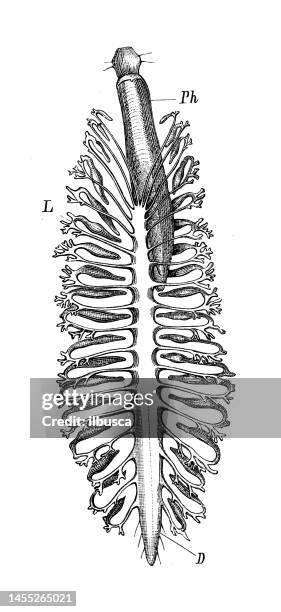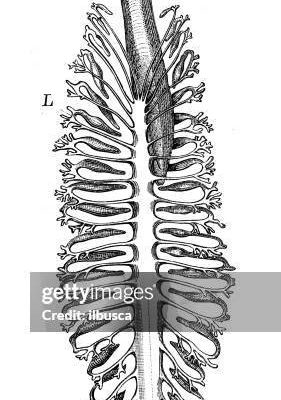
If you’re curious about how this creature impacts the environment, you’re not alone. Understanding both the ecological benefits and drawbacks of *Aphrodite aculeata* populations can help us appreciate the delicate balance of our oceanic ecosystems. Here’s a deep dive into the world of these remarkable marine worms.
What Is Aphrodite Aculeata?
*
One of the most interesting aspects of *Aphrodite aculeata* is its behavior. These worms are not just passive residents of the seafloor. They actively burrow into the sediment and help aerate it, which contributes to a healthier marine environment. You can think of them as nature’s little gardeners, subtly ensuring that their surroundings are well-maintained and flourishing.
But beyond their physical characteristics, understanding how these worms interact with their ecosystem is crucial. So, let’s delve into the ecological benefits they provide.
Ecological Benefits of Aphrodite Aculeata
Soil Aeration and Nutrient Cycling
One of the standout benefits of *Aphrodite aculeata* is its ability to aerate the ocean floor. When these worms burrow into the sediment, they create channels that allow water and oxygen to penetrate deeper layers. This process is vital because it promotes microbial activity, which is essential for nutrient cycling. In simpler terms, think of them as nature’s little plows, turning over the soil and allowing nutrients to circulate, making it more accessible to other marine organisms.
When *Aphrodite aculeata* digs, it also helps decompose organic matter. As they consume detritus—dead plant and animal material—they break it down into smaller particles, enriching the sediment. This not only benefits the worms themselves but also supports a variety of species that depend on healthy, nutrient-rich environments.
Habitat Creation
Apart from aeration, these worms contribute to habitat structure in their ecosystems. The burrows they create can serve as shelters for various marine species. Fishes, small crustaceans, and other invertebrates often find refuge in the channels made by *Aphrodite aculeata*. It’s like a bustling neighborhood in the sea, where everyone has a space to call home.
Moreover, the presence of healthy *Aphrodite aculeata* populations indicates a balanced ecosystem. Their abundance often correlates with clean waters and rich biodiversity, making them a valuable indicator species for environmental monitoring.
Ecological Drawbacks of Aphrodite Aculeata
Invasive Species Concerns
While *Aphrodite aculeata* brings many ecological benefits, it’s important to recognize that, like any species, it can have drawbacks. One primary concern is when these worms are introduced to non-native environments. In cases where they become invasive, they can outcompete local species for resources, disrupting the natural balance of the ecosystem.
Imagine a new neighbor who throws wild parties every weekend, overshadowing the quieter families around. In this scenario, local species may struggle to thrive as *Aphrodite aculeata* takes over the resources they once relied on.
Impact on Sediment Composition
Another potential drawback is the impact of their burrowing on sediment composition. While aeration is generally a good thing, excessive burrowing can lead to destabilization of the sediment, making it more prone to erosion. This can be particularly problematic in areas where sediment stability is critical for other marine life, like coral reefs. If the foundation of this underwater city becomes compromised, the entire structure may suffer.
Thus, while *Aphrodite aculeata* plays a vital role in some ecosystems, it’s a reminder that balance is key. Ecosystems are complex, and introducing or removing one species can have ripple effects.
Human Interaction and Conservation
The Role of Humans in Ecosystem Health
Humans have a considerable influence on marine ecosystems, and understanding the role of species like *Aphrodite aculeata* can help in conservation efforts. Overfishing, pollution, and climate change all threaten these delicate systems. When we disrupt the populations of worms and other foundational species, we risk damaging the entire ecosystem.
Here’s the thing: promoting healthy marine environments involves protecting species that might not get the spotlight. Conservationists and policymakers need to consider the role of creatures like *Aphrodite aculeata* when developing strategies to maintain biodiversity.
Restoration Efforts
There are projects aimed at restoring marine habitats where *Aphrodite aculeata* plays a role. These can include efforts to clean up polluted waters where these worms thrive, as well as creating awareness about the importance of conserving marine biodiversity. From supporting legislation to joining local cleanup efforts, there are many ways people can contribute.
You might be wondering what you can do personally. Even small actions, like reducing plastic use, can help protect marine environments and the species that inhabit them.
The Future of Aphrodite Aculeata Populations
Research and Monitoring
As scientists delve deeper into the ecological roles of species like *Aphrodite aculeata*, ongoing research and monitoring are crucial. Understanding how these worms respond to changes in their environment can provide valuable insights into the health of marine ecosystems.
The data collected can inform conservation strategies and help identify when intervention might be needed. Think of researchers as the detectives of the ocean, piecing together clues about how everything works together.
Engaging Communities
Engaging local communities in marine conservation is essential to foster a sense of stewardship. When people understand the importance of *Aphrodite aculeata* and its role in the ecosystem, they are more likely to contribute to conservation efforts. Workshops, educational programs, and community clean-up events can enhance awareness and encourage action.
By fostering a connection to nature, we can inspire future generations to care for our oceans and the creatures within them.
In summary, *Aphrodite aculeata* populations play a multifaceted role in marine ecosystems. From creating habitat and enhancing nutrient cycling to posing challenges when invasive, these worms are reminders that every species, no matter how small, has a role to play. Understanding their ecological benefits and drawbacks helps us appreciate the complexity of life beneath the waves. If we can strike a balance between conserving these creatures and protecting ecosystems, we can ensure a vibrant marine world for generations to come.

